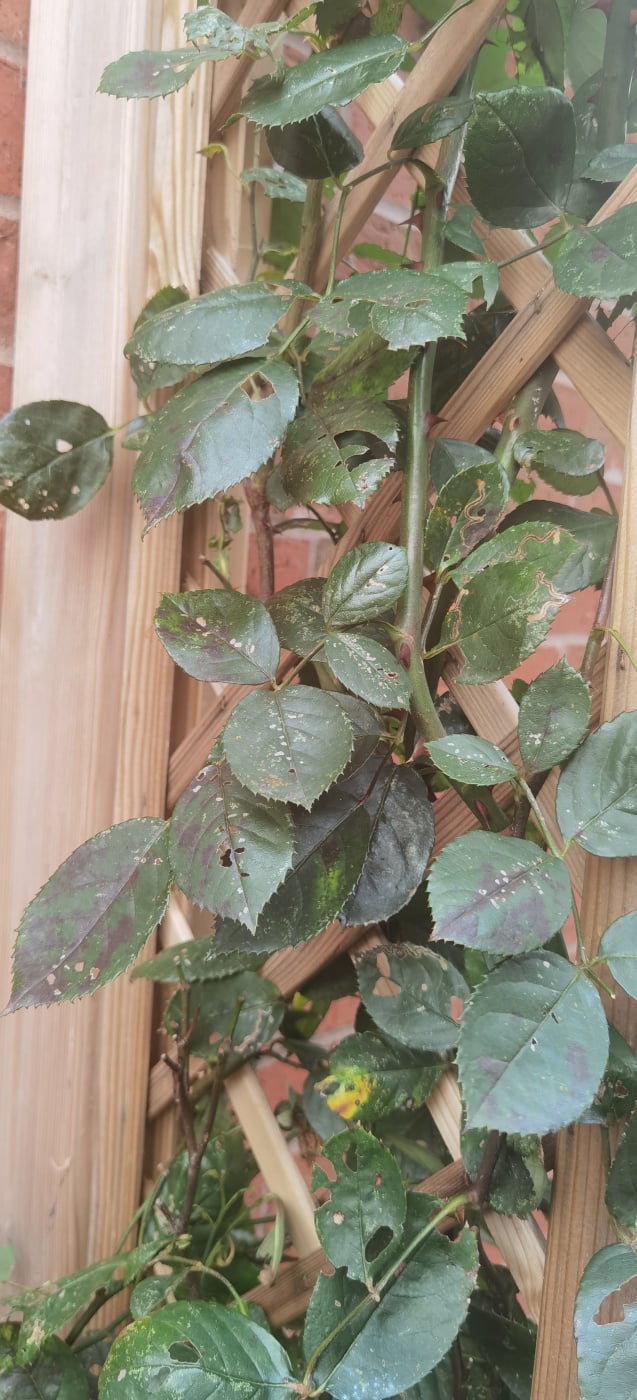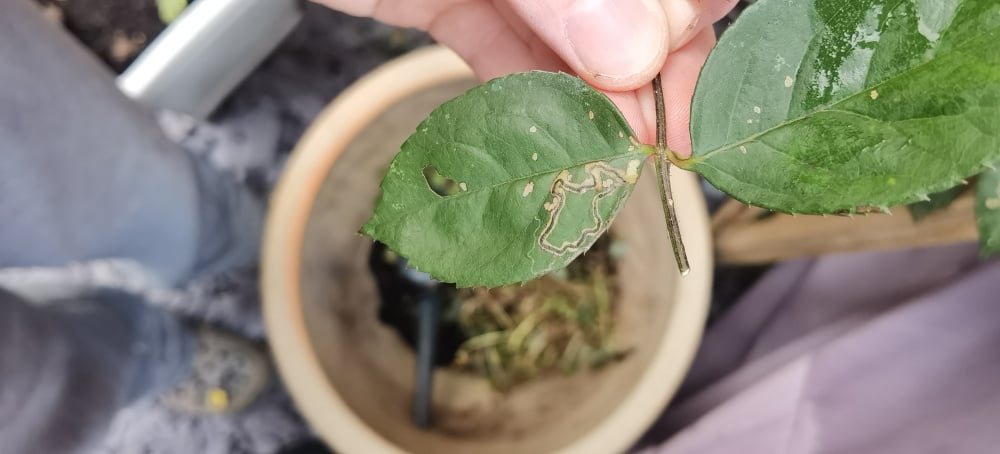This Forum will close on Wednesday 27 March, 2024. Please refer to the announcement on the Discussions page for further detail.
Any idea what's attacking my rose?
Hi I've noticed our rose isn't doing too well now it's winter any advice on what's going wrong?
I've noticed whitefly underneath the leaves and black bits?
What can I do to help them?


I've noticed whitefly underneath the leaves and black bits?
What can I do to help them?


0
Posts
Whiteflies:
Whiteflies are small, flying insects that can infest the undersides of rose leaves. They feed on plant sap and can weaken your rose plant over time.
To control whiteflies, you can try the following methods:
a. Prune affected leaves: Trim away any heavily infested leaves and dispose of them to reduce the population.
b. Hose them down: Use a strong stream of water to dislodge whiteflies from the leaves.
c. Neem oil: Applying neem oil to the undersides of the leaves can deter whiteflies. Follow the manufacturer's instructions for application.
Black spots on rose leaves are a common fungal disease called black spot. This disease can weaken the plant and reduce its overall health.
To manage black spot, you can try these methods:
a. Prune affected leaves: Trim away leaves with black spots and dispose of them. This will help reduce the spread of the disease.
b. Fungicide: Apply a fungicide specifically designed to control black spot. Follow the product's instructions for application.
c. Good air circulation: Ensure your rose plant has adequate spacing between other plants to promote air circulation, which can help prevent the development of black spot.
In addition to addressing these issues, here are some general tips for caring for your roses during the winter:
Watering: Reduce the frequency of watering during the winter months, as the plant's growth slows down. Make sure the soil is well-draining to avoid waterlogged roots.
Mulching: Apply a layer of mulch around the base of the rose plant to help insulate the roots and protect them from extreme temperature fluctuations.
Winter protection: If you experience extremely cold winters, consider using burlap or rose cones to protect your roses from freezing temperatures and harsh winds.
I wasn't sure if the homemade washing up liquid in water that I'd sprayed on the greenfly was the cause of the leaves turning.
I've picked an awful lot of leaves off some just fall off.